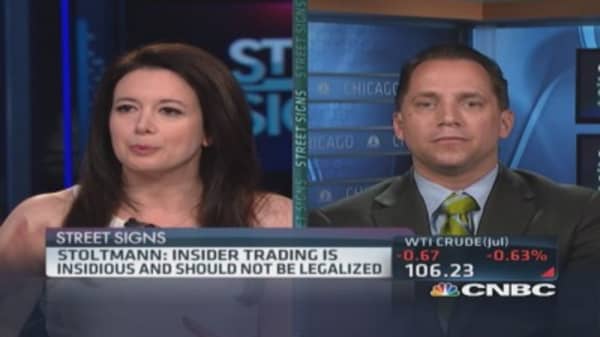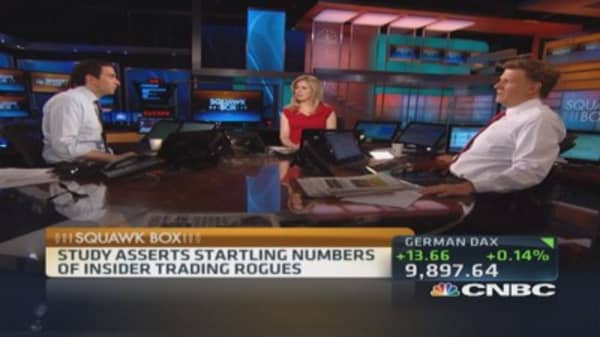At an absolute minimum, insider trading undermines investor confidence in the fairness and integrity of the securities markets. Given the series of scandals on Wall Street in the last 15 years, including conflicted research, market timing, late trading, the activities that led up to the 2008 market crash, the still developing Libor scandal, the London Whale debacle, the Facebook IPO, high-frequency traders and many others, it is imperative the Department of Justice continues to crack down on criminal insider trading.
Read MoreThe truth about insider trading: ex-Galleon trader
Proponents of legalizing insider trading argue the free flow of information will lead to an accurate pricing of securities that in the long run will benefit all investors. Unfortunately, this argument is specious, at best. While there is no question a CEO of a publicly traded company has the best and most accurate information regarding the future performance of his or her stock, can anybody question the damage to investor confidence if a CEO buys or sells shares based on information only he is privy too? Clearly, these sorts of activities are anathema to what the public believe is fair.
In addition, if insider trading were legal, corporate insiders would have a massive financial incentive to hide information from their boards of directors and from the public to maximize their personal trading profits. Even those arguing in favor of legalizing all insider trading must admit corporate directors need to be well informed to effectively ensure that invested shareholder capital is well managed. Likewise, investors must be well informed to make good investment decisions. By legalizing insider trading we would eviscerate that incentive and ensure thousands of corporate directors would be tempted to play a game of "hide the ball" with material information shareholders would want to know.
Read MoreWhy Icahn won't likely get busted for insider trading
While a select few affiliated with Wall Street believe all insider trading should be legal, the overwhelming majority of the public doesn't share that opinion. The American notion that insider trading is wrong was well-established long before the passage of the federal securities laws. In 1909, the United States Supreme Court held that a director of a corporation who knew that the value of the stock of his company was about to skyrocket committed fraud when he bought company stock from an outsider without disclosing what he knew. After the United States stock market crash of 1929, Congress enacted the Securities Act of 1933 and the Securities Exchange Act of 1934, aimed at controlling the abuses believed to have contributed to the crash. This was done in large part to restore investor trust in the financial markets.
Nothing less than the continued, aggressive crackdown on criminal insider trading, and long prison sentences for individuals who engage in the activity, is acceptable. The proponents of legalizing all insider trading simply don't grasp the insidious damage, both economic and reputational, done to investor confidence by those who violated the federal securities laws. It becomes a matter of priorities for society. By legalizing insider trading, the Raj Rajaratnams, Ivan Boeskys and Steven A. Cohens of the world will gain at the direct expense of the rest of the market, including retail investors already spooked away from the market due to Wall Street's financial chicanery.




